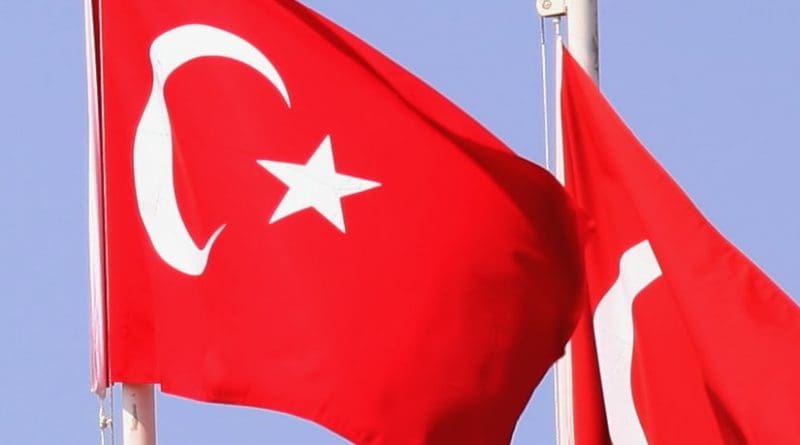Is It Over For Turkish Democracy? Implications For Regional Peace – OpEd
As the Erdogan government presses for a more authoritarian regime and curtails civil freedoms at home, Turkish foreign policy takes an increasingly hawkish direction. Turkey’s democracy deficit, if not managed properly, risks diminishing the impact of its peace efforts.
By Dr. Ulas Doga Eralp*
I have published a new edited volume earlier this year called the Turkey as a Mediator: Stories of Success and Failure. Along with my fellow contributors, we conducted a systematic analysis of Turkey’s contributions to regional and global peace mechanisms. We wanted to explore whether there is any novelty in Turkey’s approach to peace compared to established actors such as the US and EU. One of the key observations was that Turkey’s democracy deficit, if not managed, properly risks diminishing the impact of its peace efforts. Obviously as the Erdogan government presses for a more authoritarian regime and curtails civil freedoms at home, Turkish foreign policy takes an increasingly hawkish direction. There are two external reasons for this shift; the first is the demise of the Arab Revolutions and, second, the re-emergence of Russia as a global player.
One obvious question is whether it is possible to pursue pro-peace policies abroad even when you pursue pro-war policies at home. Turkey has been contributing to dialogue processes in Bosnia-Herzegovina, Somalia, and Afghanistan among others. The model of a relatively democratic capitalist emerging economy promoting cooperation has been quite attractive to many stakeholders. Turkey’s peace initiatives had a positive impact as the perception was that Turkey has been making stringent efforts to promote democracy and coexistence. This international perception has started shifting with the Arab Spring revolutions of 2011, when Ankara threw its lot with the Muslim Brotherhood inspired movements. Ankara’s motivation in supporting MB movements across the MENA region is an extension of its not-so-hidden neo-Ottoman policies. Erdogan and AKP officials imagined the Arab Revolutions as the most cost-effective opportunity to achieve their neo-imperialist agenda. However, as the Spring turned into winter, the Egyptian revolution faded away and Syria slid into full scale civil war, Ankara decided to consolidate a pro-Sunni camp against Iran’s growing regional influence. Turkey formed a strategic partnership with Qatar and supported radical Islamist groups in Syria. Not surprisingly, Turkey’s shift into radical policies in the Middle East raised the tensions in the tedious peace process with the Kurds and led to its eventual demise.
In the aftermath of the July 15th Coup Attempt, Turkey’s policy in the Middle East and Southern Caucasus has decidedly come under Russian influence. There are rumors that it was the Russian intelligence that warned Erdogan of an impending coup attempt. Russia was the first to condemn the coup attempt and stand with the Turkish Government. As a result, Ankara readjusted its policy in Syria, taking a strong stance against ISIS and distancing itself from the likes of Al Nusra Front. Turkey is in the process of making amends with Egypt over the fate of the Muslim Brotherhood, re-establishing diplomatic relations with Israel and even looking for ways to rebuild relations with Armenia. Ankara’s attempts to be a key player with troops on the ground at the expense of Kurdish forces in Iraq and Syria also seem to have been quelled for the time being due to American and Iraqi resistance.
While Turkish foreign policy is going through a process of re-rationalization in the Middle East under Russian influence, its relations with EU are at an all times low. Erdogan has started campaigning for the re-introduction of the death penalty as part of his bid for executive presidency, and ordered the imprisonment of hundreds of opposition journalists under the disguise of purging Gulenists. Elected mayors of Kurdish cities along with co-Presidents of Turkey’s third largest party pro-democracy, HDP, are currently in prison awaiting trials on charges of treason. Brussels has so far voiced “strong concern” over the authoritarian turn, but stopped short of freezing relations. The only positive development is the on-going re-unification negotiations in the island of Cyprus, seemingly an anomaly in the larger scheme of EU-Turkey relations, which are most probably fail before the end of the year.
Turkey’s authoritarian turn should be thought as part of a larger global trend of rising right nationalism. Four permanent members of the UNSC are now run by populist leaders after the election of Donald Trump; similarly emerging powers such as Brazil, South Africa and India are experiencing wide spread right wing populism. Turkey’s democratic credentials have been severely damaged and security-oriented thinking has replaced its earlier commitment to democratic peace frameworks in the region. This obviously is a strong warning to many analysts to start thinking how security-oriented thinking could be moderated to cause the least damage in the region. It’s now time to make a decision between appeasement and isolation. Unfortunately there is no third choice.
*Dr. Ulas Doga Eralp is a scholar and practitioner of international conflict, human rights, development and democratization. He has a PhD from the School for Conflict Analysis and Resolution from George Mason University, and currently works as a Professorial Lecturer at the International Peace and Conflict Resolution Program of the School of International Service (SIS) at American University in Washington, DC.
The views expressed in this article do not necessarily reflect the views of TransConflict.

